Biochar: What is Biochar?
We Doowans LOVE to bring you the latest and greatest in gardening and other news. We have known about this secret for years now and it time, we spill the beans. If you know what I mean. So we wrote, Biochar the secrets out. Some gardens have heard of Biochar. Those new to gardening may not have, and hears, (I know), the secret to a prolific garden.
The short answer, Biochar is like steroids for your garden plants. They love the stuff.
The long answer, Biochar is a name for charcoal when it is used for particular purposes, especially as a soil amendment. Like all charcoal, biochar is created by pyrolysis of biomass. Biochar is under investigation as an approach to carbon sequestration to produce negative carbon dioxide emissions. Biochar thus has the potential to help mitigate climate change, via carbon sequestration. Independently, biochar can increase soil fertility, increase agricultural productivity and provide protection against some foliar and soil-borne diseases. Furthermore, biochar reduce pressure on forests, though the degree to which results offer long-term carbon sequestration in practice has been challenged. Biochar is a stable solid, rich in carbon and can endure in soil for thousands of years.
Biochar Research
Researchers have shown that by adding charcoal dust, (Biochar) which can be produced from crop residues and other wastes to soil, they can reverse soil fertility decline, improve crop yields, and improve plant response to fertilizer. The benefits of this charcoal (Biochar) powder and its low production cost make it an important strategy for agricultural development and sustainable land management, and a potentially significant tool for reducing greenhouse gases by sequestering carbon in soil.
The technology has strong preliminary evidence to support its impact. Research has found that early adoption by farmers increased yields by approximately 23% in the first season of application, and 30% a year later. However, there is a need to make the technology scalable the distribution network for biochar is diffuse and difficult to build up, so it may prove most expedient to allow farmers to produce and apply the biochar themselves, using a low-cost kiln and inputs that are readily accessible on most farms.
Research presented at a recent American Chemical Society annual meeting suggests that biochar plus chemical fertilizer yields increased growth of winter wheat and several vegetables by 25-50% compared to chemical fertilization alone. Soil Science Society of America experiments found that biochar supplemented with fertilizer outperformed fertilizer alone by 60%.
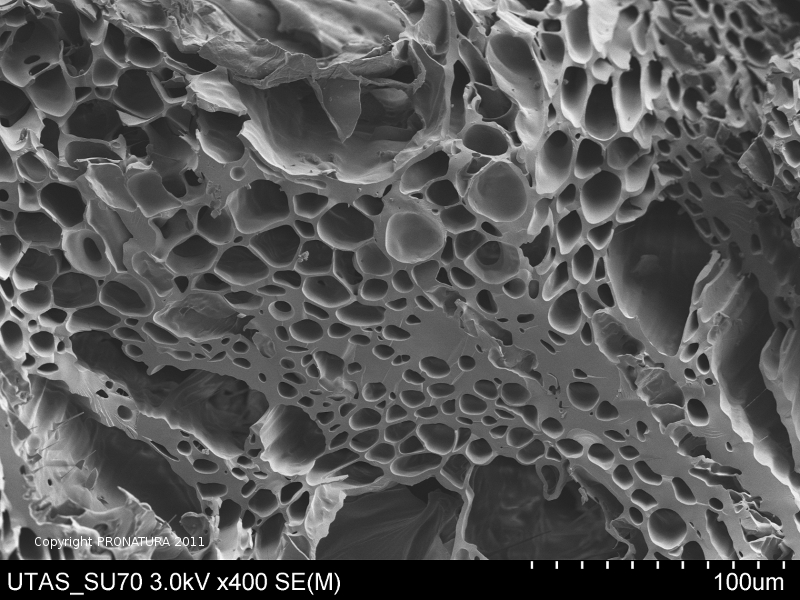
Biochar Looks like an English Muffin, with all those nooks and crannies
Doowans would like to thank Jocelyn for the biochar electron microscope images
Please Visit
biocharproject.org.
Monsanto has been barking up the wrong tree, If you know what I mean. Monsatan is bragging about its increase in yields. Here’s what a Farmer said about that. Well they need a lesson in Biochar. To put in their terms, More study is needed. Can you teach an old dog new tricks? Not likely in this case. They want to sell their chemicals (Roundup). The benefit of mankind is not their top priority. Let’s let that sleeping dog lay, if you know what I mean.
Biochar a Valuable Soil Amendment
Biochar is a solid material obtained from the carbonisation of biomass. Biochar may be added to soils with the intention to improve soil functions and to reduce emissions from biomass that would otherwise naturally degrade to greenhouse gases. Biochar also has appreciable carbon sequestration value. These properties are measurable and verifiable in a characterisation scheme, or in a carbon emission offset protocol.
This 2,000 year-old practice and may go back further, converts agricultural waste into a soil enhancer that can hold carbon, boost food security and discourage deforestation. The process creates a fine-grained, highly porous charcoal that helps soils retain nutrients and water. Exactly what your garden plants need.
Biochar is found in soils around the world as a result of vegetation fires and historic soil management practices. Ever wonder why after a fire the vegetation comes back so fast and is more prolific? Yep, Biochar.
Intensive study of biochar rich dark earths in the Amazon, has led to a wider appreciation of biochar’s unique properties as a soil enhancer.
Biochar will be an important tool to increase food security and cropland diversity in areas with severely depleted soils, scarce organic resources, and inadequate water and chemical fertilizer supplies.
Biochar also improves water quality and quantity by increasing soil retention of nutrients and agrochemicals for plant and crop utilization. More nutrients stay in the soil instead of leaching into groundwater and causing pollution. Is Biochar the Secrets out, the new wonder drug for Mother Earth? Read on!
Biochar a Powerfully Tool to Combat Climate Change
The carbon in Biochar resists degradation and can hold carbon in soils for hundreds to thousands of years. Biochar is produced through the gasification processes that heats the biomass in the absence (or under reduction) of oxygen.
In addition to creating a soil enhancer, sustainable biochar practices can produce oil and gas byproducts that can be used as fuel, providing clean, renewable energy. When the biochar is added to the ground as a soil enhancer, the system can become “carbon negative.” Meaning we can reduce Co2 emissions around the world.
Biochar and bio-energy in co-production can help combat global climate change by displacing fossil fuel use and by sequestering carbon in stable soil carbon pools. It may also reduce emissions of nitrous oxide.
We can use this simple, yet powerful, technology to store 2.2 gigatons of carbon annually by 2050. It’s one of the few technologies that is relatively inexpensive, widely applicable, and quickly scalable. We really can’t afford not to pursue it. As a matter of fact we can all pursue this secret practice at home. Here’s how!
Biochar in the Garden
Here are some benefits of using Biochar in your garden?
Receive the following benefits with the addition of Biochar in your home garden.
- Enhanced plant growth
- Suppressed methane emission
- Reduced nitrous oxide emission (estimate 50%)
- Reduced fertilizer requirement (estimate 10%)
- Reduced leaching of nutrients
- Stored carbon in a long-term stable sink
- Reduces soil acidity: raises soil pH
- Reduces aluminum toxicity
- Increased soil aggregation due to increased fungal hyphae
- Improved soil water handling characteristics
- Increased soil levels of available Ca, Mg, P, and K
- Increased soil microbial respiration
- Increased soil microbial biomass
- Stimulated symbiotic nitrogen fixation in legumes
- Increased arbuscular mycorrhyzal fungi
- Increased cation exchange capacity
Just to name a few. Biochar the Secrets Out could just save us from our mistakes of the past and turn things around for the human race in the future. Gardeners around the world may just be the saving grace for this planet. Join us in using the Biochar secret in your home garden. Our children will be glad you did.
The Doowans way to making Biochar
Use 100% natural charcoal briquettes. Not the ready light with the lighter fuel infused. They can be found at most stores. Or DoowansGardenSupply.com has a Biochar burner we offer from BurnRight use this link and tell them we sent you. This burner severs two purposes. It’s a debris burner, that can be used for yard clean up and at the same time. One can make Charcoal that can be used for Biochar. It’s inexpensive and serves a dual purpose.
Take your charcoal and crush it up into small pieces the smaller the better. We started with a small bag of charcoal until we got the hang of this process. We like to add our natural fertilizers like Compost Tea, Worm Tea and extra ingredients to our Biochar to give it and extra kick. This is one way to charge and infuse the biochar with compost tea and extra ingredients that you might like.
Put charcoal in a 5 gallon or larger bucket or larger barrel, filled half way up add water or compost tea up to 3/4 full. (completely covering the biochar). This is where you could add in microbes as well. We add fish emulsion and sea weed extract. Believe it or not we also add molasses. The microbes seem to like this. You can add bone meal, calcium, and even Urine, anything else that you think your plants will use.
Use a long-handled wooden spoon or stick and stir in one direction for about a minute or two and then the other direction. Repeat several times. To make this job even easier, We use a fish aquarium air pump with two air outlets. Around $12.00 in cost. We place one outlet at the bottom and the other a couple inches in the top of the solution. This provides a constant mixing and the micros like the oxygen. We let this brew for 24-36 hrs. It ferments pretty fast this way. Or you can just let it sit and ferment like they show in this video.
We drain the liquid off and mix it in a Rain Barrel we use to water our plants from. This allows use to continue to added diluted fertilizer to our vegetable garden plants as they grow. And grow they do! Just like the Amazon.
Add the Biochar, the activated charcoal, the chunky and powdered stuff, to the soil or compost at a rate of 5 cups per cubic foot of dampened soil . Be sure that the biochar is mixed under and into the soil real good. This activated stuff does a slow release of vital nutrients to the roots of the plants. It also allows for less watering as it holds the water in the soil.
When you are finished with mixing it into the soil be sure to add in the Biochar compost tea over the areas where it was just added. We usually do this after the plants are established. We like to container garden as there is less weeding and water waste in container gardening. And we also use raised vegetable beds and planters as well. This is a real back saver. But if you like to plant directly into good old Mother Earth this works great as well.
Biochar is Yummy stuff for the soil, plants and microbes. Give this a try, it made a big difference in our garden and we can guarantee it will in yours.
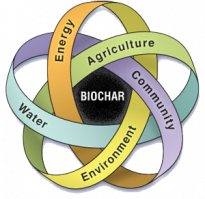
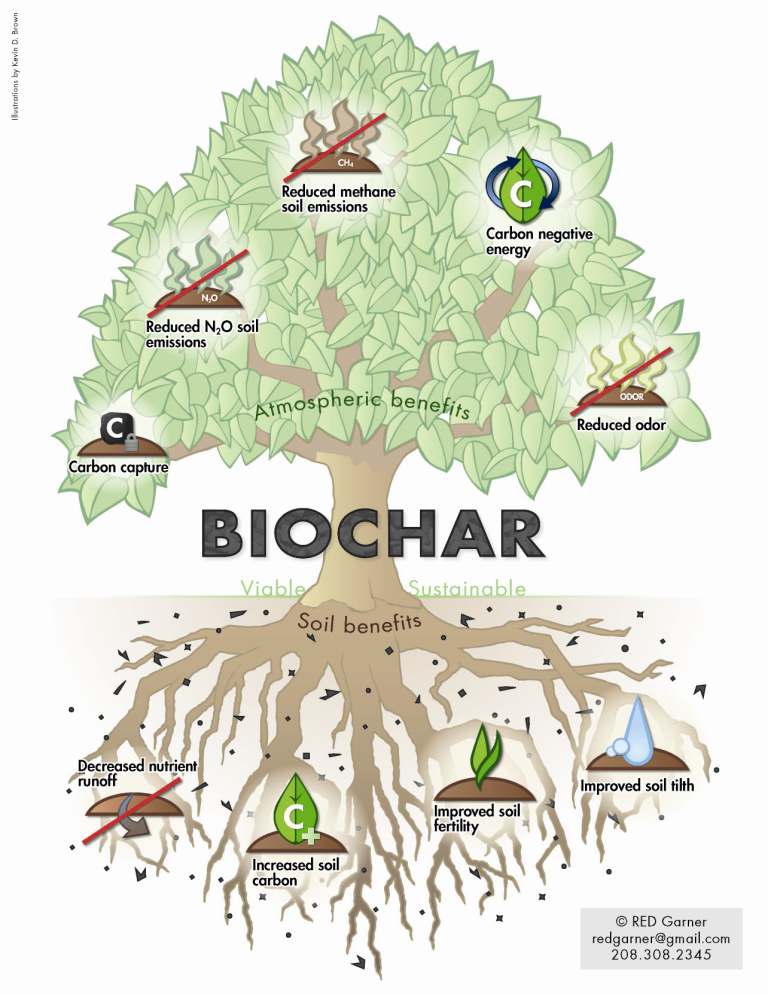

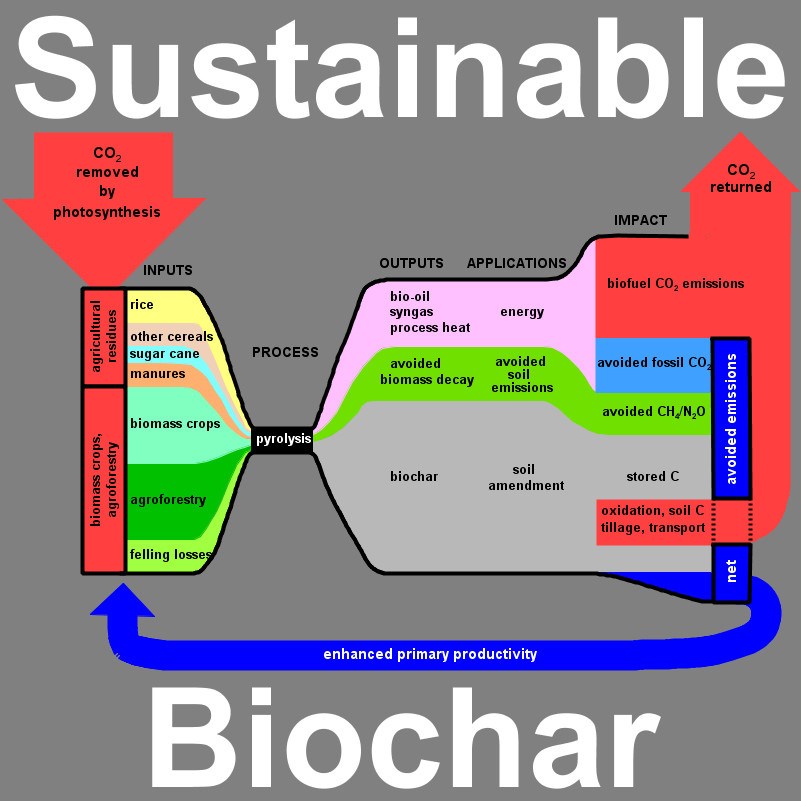

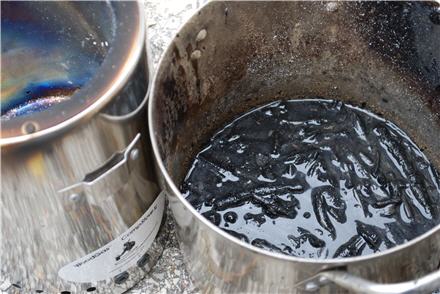
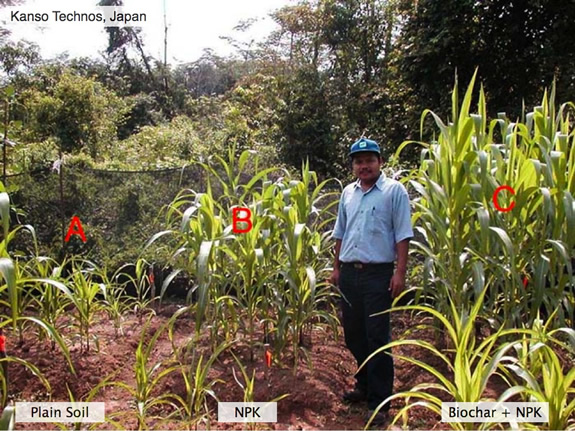
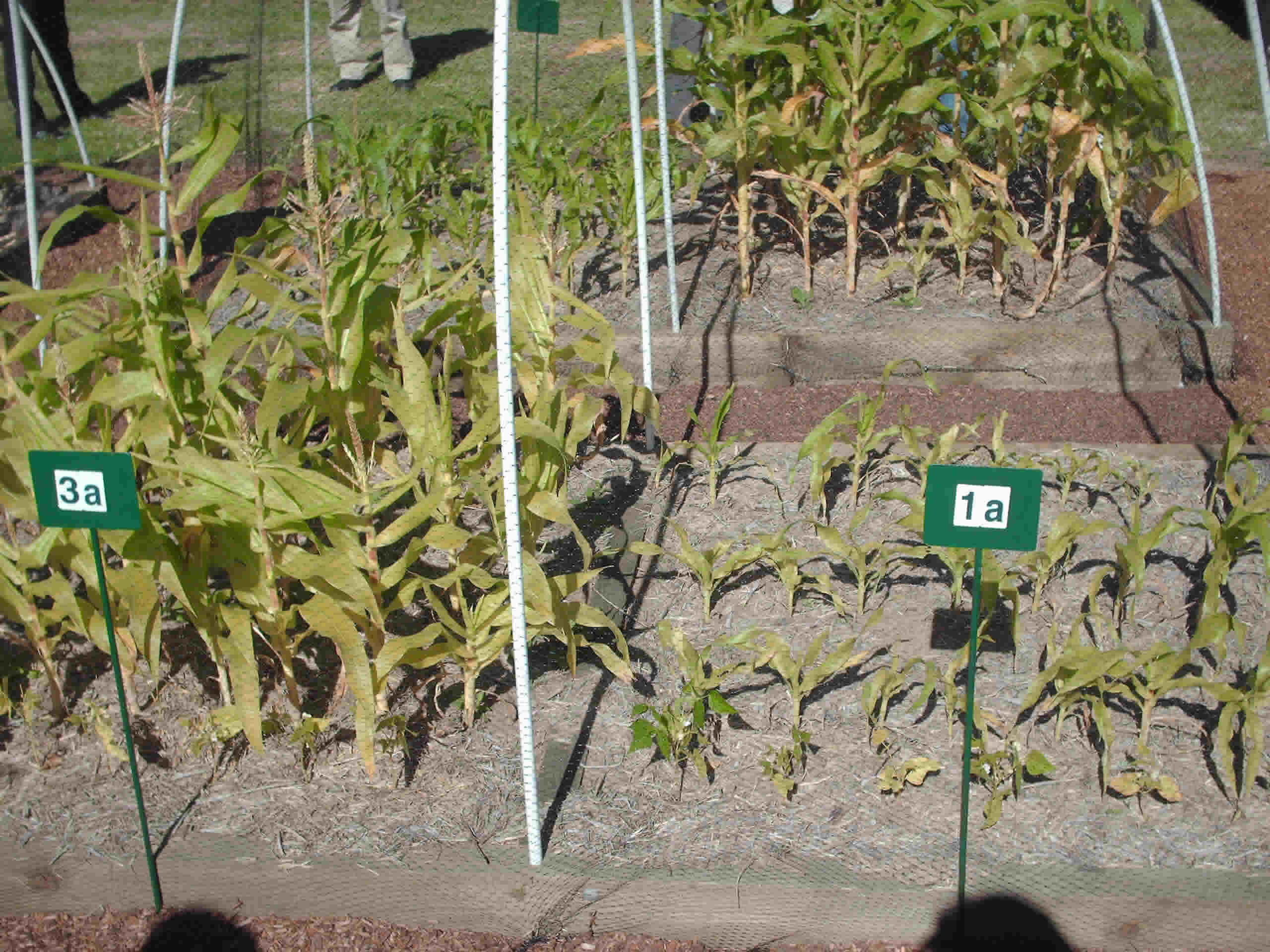

What i don’t understood is actually how you’re no longer actually
much more smartly-preferred than you might be right now.
You’re so intelligent. You already know therefore significantly relating to this topic, made me personally imagine it from a lot of various angles. Its like women and men are not fascinated until it’s one thing to do with Woman gaga!
Your individual stuffs great. All the time deal with it up!
Hi! I just wanted to ask if you ever have any trouble with
hackers? My last blog (wordpress) was hacked and I
ended up losing many months of hard work due to no back up.
Do you have any methods to stop hackers?
No. I AM sorry. Hackers do what they do. Far be it from me to stop them. It’s never work when one LOVEs, We share! If they take it’s all theirs. I like the briquettes.They serve a dual purpose. Biochar and food, Hot. Thanks You! Can we get some?
What’s up very cool website!! Man .. Beautiful .. Wonderful .. I’ll bookmark your website and take the feeds also I’m glad to search out so much useful info right here in the submit, we need to work out extra techniques on this regard, Thanks for sharing.
Hey Great to see a picture of my Biochar on your blog. Slowly the word is spreading Thank you.
Could you tell me where you got the electron microscope image of Biochar from as someone has put a copy write notice on the picture I have released free to the public domain. I really don’t like people trying to make money on my gifts to humanity. Here is the link to the original image on my site.
http://biocharproject.org/education-2/biochar-electron-microscope-images/
Here is the license text .
These photos have been placed in the public domain for the benefit of the entire human race so please feel free to use / share / reproduce / disseminate or any other thing you might want to do with them. Please be a champ and give credit to Jocelyn or a nice fat back link to biocharproject.org.
Charmaster Dolph Cooke
biocharproject.org
Dear Mr. Dolph Cooke, Charmaster at Biochar.org
We apologize for are indiscriminate use of your picture. As per your request, we have done both. Please forgive us as we were simply informing our readers as to this miracle soil enhancement Biochar. As we stated in our blog on Biochar, we believe this could just save our planet from our past mistakes. We thank you for your efforts in the Discovery and Creation of this wonderful soil enhancing Element. Again we apologize and Thank you! CJC
No need to apologize friends I really am very excited and happy for you to use it. your write up is awesome I was just worried someone had put a copywrite notice on the image that is not their work pro natura I think it was.
I want biochar to be FREE for the People by the People.
I want the message out that Biochar indeed can heal the planet
I am your Ally
Sorry if it seemed over the top.
Charmaster Dolph
It’s wonderful to have met you. Thank you for being so kind it’s great to have an ally, such as yourself. If there’s more we can do to help, count us Doowans in. If we had the source we would be happy to offer it for free on our websites. We Doowans are all about saving this planet as we are all in this reality together. Again it,s good to know we have a friend in you. Thank You Keep in touch. It’s a wonderful thing you are going. If we can help in anyway please let us know how.
Thank you for the comprehensive coverage of Biochar soil benefits. If I may add two points;
To reach 2.2 Gt C reduction by 2050 we need all hands on deck, Clean pyrolytic & gasifing cook stoves across the global subsistence farming South can easily produce one gigaton,, to be a global climate solution we need commercial agriculture to be brought into the fold by showing them the data. All political persuasions agree building soil carbon is good. That soil carbon is the BANK….. Everything else is a Dividend!
The Bio-refining components to harvest Carbon;
The photosynthetic “capture” collectors are up and running all around us, the “storage” sink is in operation just under our feet, conversion reactors are the only infrastructure we need to build out. Carbon, as the center of life, has high value to recapitalize our soils. Yielding nutrient dense foods and Biofuels, Paying Premiums of pollution abatement and toxic remediation and the growing Dividends created by the increasing biomass of a thriving soil community.
You Catch more flies with Honey, even Monsanto flies. I have dedicated my work in Biochar to form an uncomfortable marriage between Organic & Commercial agriculture. The marriage based on increased soil microbial diversity for organics and the increased synthetic nitrogen efficiency for the commercial guys.
The Paleoclimate Record shows agricultural-geo-engineering is responsible for 2/3rds of our excess greenhouse gases. The unintended consequence, the flowering of our civilization. Our science has now realized these consequences and has developed a more encompassing wisdom. Wise land management, afforestation and the thermal conversion of biomass can build back our soil carbon. Pyrolysis, Gasification and Hydro-Thermal Carbonization are known biofuel technologies, What is new are the concomitant benefits of biochars for Soil Carbon Sequestration; building soil biodiversity & nitrogen efficiency, for in situ remediation of toxic agents, and, as a feed supplement cutting the carbon foot print of livestock. Modern systems are closed-loop with no significant emissions. The general life cycle analysis is: every 1 ton of biomass yields 1/3 ton Biochar equal to 1 ton CO2e, plus biofuels equal to 1MWh exported electricity, so each energy cycle is 1/3 carbon negative.
Please review my presentation and slides of this opening talk for the USBI Biochar conference in Sonoma California. This is the third US Biochar conference, after ISU 2010 and Colorado 2009.
“Carbon Conservation for Home, Health, Energy & Climate”
http://2012.biochar.us.com/299/2012-us-biochar-conference-presentations
Since we have filled the air , filling the seas to full, soil is the only beneficial place left.
Carbon to the Soil, the only ubiquitous and economic place to put it.
Erich J. Knight Thank You for you comment. We couldn’t agree more with you’re information. Humanity finally has away to give back to our Mother Earth. Biochar is a wonderful gift. We can all chip in and save ourselves and our planet. The time to act is now. Again we Doowans thank you for your efforts in presenting this gift.